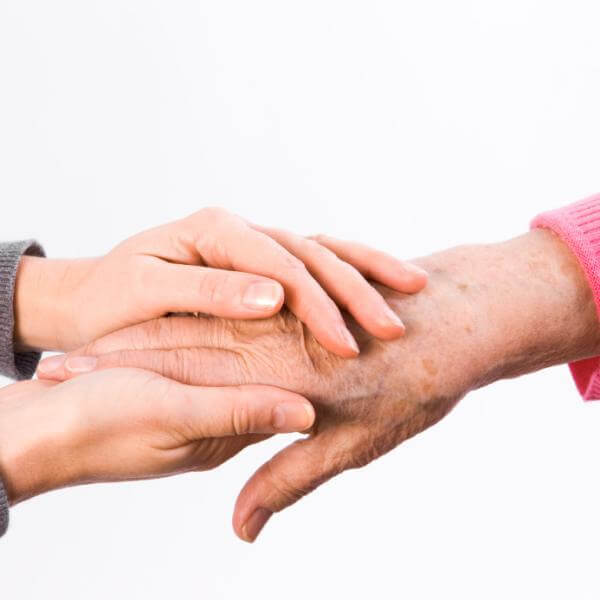Evidence Update: The Benefits of Massage for Patients with Breast Cancer

A systematic review of 203 research articles related to the usefulness of complementary therapies to manage treatment side effects and improve quality of life was published recently in the Journal of the National Cancer Institute Monographs. The study found that there is substantial research to support the benefits of massage, yoga and energy conservation techniques for stress reduction, anxiety, depression, fatigue and improved quality of life. The report concludes that these interventions are safe, effective and useful to be included in clinical practice guidelines. Massage therapy has been shown to be a benefit to breast cancer survivors, and the benefits last long after the massage session. This month, TurningPoint’s massage therapists, who are experts in the field of massage for patients going through breast cancer treatment, will lead an interesting and informative education event on massage and breast cancer Greenlee et al. Clinical practice guidelines on the use of integrative therapies as supportive care in patients treated for breast cancer. J Natl Cancer Inst Monogr. 2014 Nov;2014(50):346-58.
Evidence Update: To Jump-Start Your Exercise Routine, Be Mindful

The benefits of exercise for breast cancer survivors during and after treatment is well known. But…we all struggle to stick with an exercise program, particularly when life gets busy. A new study suggests that by paying more attention to the experience of exercise itself, we are more likely to continue an exercise program. This is important, especially to reluctant exercisers. Research confirms that one of the most reliable indicators of whether people will continue to exercise is that they find exercise satisfying. They gain enjoyment from being active! A recent study hoped to shed light on what makes exercise feel pleasurable to some and like drudgery to others. Specifically, they were interested in the role of mindfulness, a deliberate awareness of what is happening in the present moment. To test this relationship between mindfulness and satisfaction with exercise, Dutch researchers interviewed 398 women and men who identified themselves as physically active. Participants were asked how much they exercised, how satisfied they were with that exercise and how mindful they were during exercise. Not surprisingly, the people who reported being most satisfied with exercise were also the people who exercised the most. What was interesting is that mindfulness played an important role in making exercise feel satisfying. People who reported being mindful and present during exercise also generally reported satisfaction with exercise. This, in turn, should help them stick with a regular exercise program. So…the next time you walk, run, cycle or work out at the gym, be aware of the sensations of your body and mind. Immerse yourself in the experience. Do something new and challenging, and incorporate things you really enjoy. Try adding some fun to your workout with this month’s “Balls, Bosus and Bands” Class, presented by our TurningPoint physical therapists on March 25, 2015 in the TurningPoint gym. Tsafou KE et al. Mindfulness and satisfaction in physical activity: A cross-sectional study in the Dutch population. J Health Psychol. 2015, Jan 28. pii: 1359105314567207. [Epub ahead of print]
Evidence Update: Body Image and Sexuality – You are Not Alone!

Breast cancer and its treatments may affect sexual functioning based on physiological and psychosocial mechanisms. A recent study examined various aspects of sexual and psychosocial functioning before surgery, six months and one year after surgical treatment in 149 women with breast cancer. Of interest is that they also compared sexual function with an equal number of women of the same age who did not have breast cancer. Compared to before surgery and to women without breast cancer, women after breast cancer reported significantly more problems with sexual desire and arousal six months after surgery. Problems were greater for women who had mastectomy versus lumpectomy. Interestingly, the study found that the women with breast cancer reported significantly more consensus in their relationship with their partners than the non-breast cancer group. The threatening nature of a breast cancer diagnosis and treatment may increase vulnerability in relationships that results in re-evaluating the importance of the other person in their life and the necessity of agreement on relevant issues between partners. The issues and concerns related to body image and sexuality are not unique to breast cancer survivors, but breast cancer and its treatment can produce a wave of physical, emotional and social changes that can greatly challenge breast cancer survivors’ quality of life. Join us this month for our education event, led by TurningPoint’s counselor Karen Savrin, MSW, as we explore these challenges and consider practical ways to address them. Aerts, L. et al. Sexual functioning in women after mastectomy versus breast conserving therapy for early-stage breast cancer: a prospective controlled study. Breast. 2014:23(5):629.










